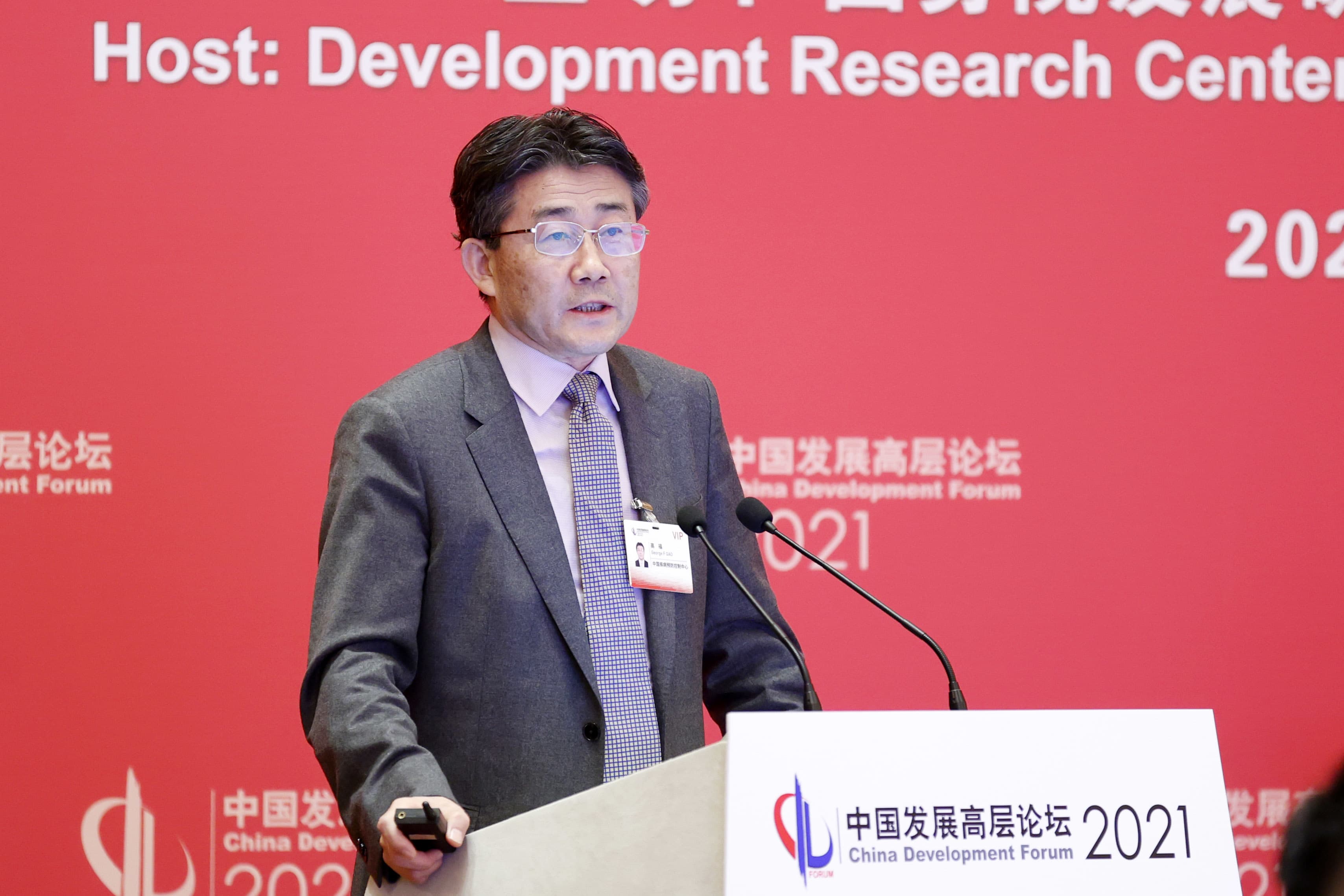Gao Fu, director of the Chinese Center for Disease Control and Prevention, speaks at the China Development Forum in 2021 at Diaoyutai State Guesthouse on March 20, 2021 in Beijing, China.
Han Haidan | China News Service | Getty Images
In the rare recognition of the weakness of Chinese coronavirus vaccines, the country’s leading disease control officer says that its effectiveness is low and that the government is considering mixing it to give a boost.
Chinese vaccines “do not have very high protection rates,” the director of the China Centers for Disease Control, Gao Fu, said at a conference in the southwestern city of Chengdu.
Beijing has distributed hundreds of millions of doses abroad while trying to question the efficacy of the Pfizer-BioNTech vaccine made using the previously experimental messenger RNA, or mRNA.
“It is now formally being considered whether we should use different vaccines from different technical lines for the vaccination process,” Gao said.
Officials at a news conference Sunday did not immediately respond to questions about Gao’s comments or possible changes to official plans. But another CDC official said developers are working on mRNA vaccines.
Gao did not respond to a phone call to comment further.
“The mRNA vaccines developed in our country have also entered the clinical trial stage,” said official Wang Huaqing. He gave no timeline for possible use.
Experts believe that mixing vaccines, or sequential vaccination, can increase efficacy. Researchers in Britain study a possible combination of Pfizer-BioNTech and the traditional vaccine against AstraZeneca.
The coronavirus pandemic, which began in central China in late 2019, is the first time the Chinese drug industry has played a role in responding to a global health emergency.
Vaccinations made by Sinovac, a private company, and Sinopharm, a state-owned enterprise, accounted for the majority of Chinese vaccines distributed to several dozen countries, including Mexico, Turkey, Indonesia, Hungary, Brazil, and Turkey.
The researchers in Brazil found that the effectiveness of a Sinovac vaccine in preventing symptomatic infections is as low as 50.4%, close to the 50% threshold at which health experts say a vaccine is useful. For comparison, the Pfizer-BioNTech vaccine was found to be 97% effective.
Health experts say Chinese vaccines are unlikely to be sold to the United States, Western Europe and Japan due to the complicated approval process.
A Sinovac spokesman Liu Peicheng acknowledged that different levels of efficacy had been found, but said it could be due to the age of people in a study, the virus strain and other factors.
Beijing has yet to approve foreign vaccines for use in China.
Gao gives no details on possible changes in strategy, but mentions mRNA as a possibility.
“Everyone should consider the benefits that mRNA vaccines can bring to humanity,” Gao said. “We need to follow it closely and not ignore it, because we already have different types of vaccines.”
Gao has previously questioned the safety of mRNA vaccines. He told the official Xinhua News Agency in December that he could not rule out negative side effects as they were being used on healthy people for the first time.
Chinese state media and popular health and science blogs have also questioned the safety and efficacy of the Pfizer BioNTech vaccine.
About 34 million people in China received both the two doses needed for Chinese vaccines on April 2, and according to Gao, about 65 million people received one.
Sinovac spokesman Liu said studies found that protection “could be better” if the time between vaccinations was longer than the current 14 days, but gave no indication that it could be used.
